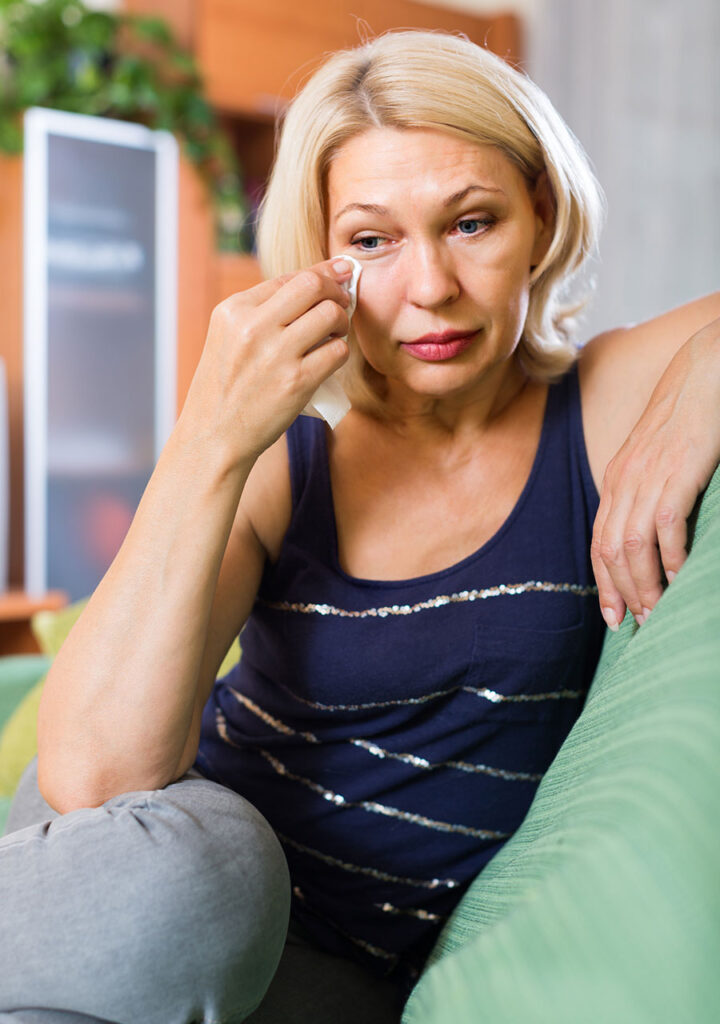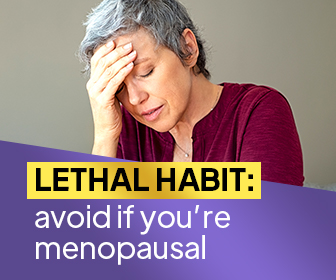Menopause is a natural transition in a woman’s life, marked by the cessation of menstrual periods. While the physical symptoms of menopause are widely discussed, the emotional and psychological changes that come with this transition are often overlooked. Mood swings and depression are common symptoms experienced by many women going through menopause, but they can be managed with the right strategies.
One way to alleviate mood swings and depression is with MenoRescue™, which has produced amazing results for our customers by supporting hormonal balance. But it’s always a good idea to complement MenoRescue™ with other practices, too.
Understanding Mood Swings and Depression during Menopause
Mood swings are a common symptom of menopause, affecting up to 40% of women. Hormonal changes during menopause can cause mood swings, which are often characterized by feelings of irritability, anxiety, or anger that are out of proportion to the situation. Mood swings can also be accompanied by physical symptoms such as hot flashes, insomnia, and fatigue.
Depression is another common symptom of menopause, affecting up to 20% of women. Depression during menopause is often characterized by feelings of sadness, hopelessness, and worthlessness. Women may also experience changes in appetite, sleep disturbances, and decreased energy.

Managing Mood Swings and Depression during Menopause
Fortunately, there are many strategies that women can use to manage mood swings and depression during menopause. These strategies may include lifestyle changes, alternative therapies, and medication.
- Exercise: Regular exercise has been shown to improve mood and reduce symptoms of depression. Women going through menopause should aim for at least 30 minutes of moderate-intensity exercise most days of the week.
- Cognitive-behavioral therapy (CBT): CBT is a type of talk therapy that has been shown to be effective in treating depression. CBT can help women develop coping strategies to manage negative thoughts and behaviors.
- Hormone therapy: Hormone therapy can help manage mood swings and depression in some women. However, hormone therapy is not appropriate for everyone, and women should talk to their healthcare provider about the risks and benefits.
- Herbal supplements: Some herbal supplements, such as black cohosh and red clover can help manage mood swings and depression in some women. According to a review article published in the Journal of Women’s Health, black cohosh may have a positive effect on mood and quality of life in menopausal women. Red clover contains phytoestrogens, which are plant compounds that have estrogen-like effects on the body. According to a review article published in the Journal of Women’s Health, red clover may help to reduce anxiety and depression in menopausal women.
- Lifestyle changes: Women going through menopause should aim to maintain a healthy lifestyle, including getting enough sleep, eating a balanced diet, and reducing stress. Meditation, yoga, and relaxation techniques can also be helpful in managing mood swings and depression.
- Social support: Talking to friends and family members, or joining a support group, can help women going through menopause feel less alone and more supported.
In conclusion, mood swings and depression are common symptoms experienced by many women going through menopause. However, these symptoms can be managed with the right strategies, including exercise, CBT, herbal supplements, lifestyle changes, social support, and of course, MenoRescue™. Women going through menopause should talk to their healthcare provider about the best strategies for managing their symptoms and improving their overall quality of life.








